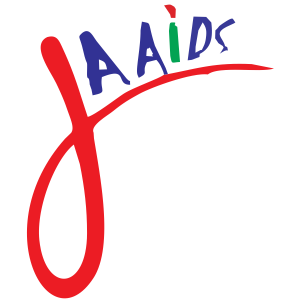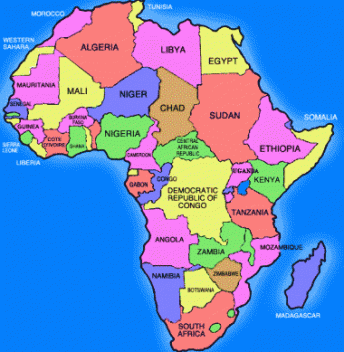Civil Society Organisations Pre-Forum Meeting African Development Forum – ADF 2000
Keynote Address
by Mr. Omololu Falobi
Project Coordinator,
Journalists Against AIDS (JAAIDS) Nigeria
04 December 2000
Good morning, distinguished ladies and gentlemen and colleagues from media organisations from across Africa, About a week ago, Journalists Against AIDS (JAAIDS) Nigeria, a media-based organisation which I coordinate, invited key media stakeholders in Nigeria to a Discussion Session on media needs and constraints in coverage of HIV/AIDS. Under its Media Advocacy project, JAAIDS seeks to collate the opinions and perspectives of key representatives of the media on the challenges and constraints facing journalists on coverage of HIV/AIDS-related news.
The objective of the Discussion Session we held last week was to aggregate views and perspectives of key media players on journalists’ information needs and constraints in reporting of HIV/AIDS. The conclusions and recommendations from the Discussion Session will guide the form and content of a monthly bulletin on HIV/AIDS for the media, which our organisation intends to start publication of in January 2001.
The journalists who participated in the session we held were unanimous in agreeing that the media plays a crucial role in combating HIV/AIDS. One role is “to pass across accurate information so as not to mislead the general public.” Another role is to “report the facts (about HIV/AIDS)…because it is what we write that the public believes”. One participant commented that the journalist also has a role to “write stories that will lead to behaviour change”.
In 1997 when I helped form Journalists Against AIDS (JAAIDS), it was out of a realisation that with HIV/AIDS, journalists must become advocates of change – behavioural change, policy change. HIV/AIDS is unlike many other development challenges. It is a pandemic, destroying lives in millions. 25 million Africans are now living with HIV or AIDS. In 8 African countries, at least 15% of adults are infected. In these countries, AIDS will claim the lives of around a third of today’s 15-year-olds in Africa.
AIDS is also a disease that calls for fundamental changes in our sexual lifestyles, but also in some of our cultural practices and gender responses. With HIV/AIDS, the saying ‘a stitch in time saves nine’ acquires practical meaning.
But we also know that the kind of targeted, intensive responses that the AIDS emergency desires are lacking in many of our countries. Too often in Africa, our leadership have failed to address themselves to issues that affect people’s lives. Our leaders have tended to become re-actors, rather than pro-actors. They have delighted in mouthing slogans that have no practical meaning in action, in addressing issues as ‘business as usual’.
But HIV/AIDS is not business as usual. It is an epidemic that is daily destroying African lives. Africa is home to nearly 70% of adults and 80% of children living with HIV in the world. Three-quarters of the more than 20 million worldwide who have died of AIDS since the epidemic began are Africans.
Why does this happen; why do we continue to have so many deaths, so many wasted lives and truncated dreams; 20 years after HIV got a name, and some half a decade after we have devised treatment that can at least beat the virus? The problem, is a failure of leadership: leadership at political level, leadership at community level, leadership at religious level, at sectoral levels. Simply put, we have failed to act up.
We have failed to hold our leaders responsible to the diligent performance of their duty in mobilising local responses against AIDS. We have not done enough as stakeholders in the fight against this epidemic. As the famed ‘fourth estate of the realm’, we have a lot more to do to live up to our duties as whistle-blowers, watchdog and gatekeeper.
When a few colleagues and I formed Journalists Against AIDS Nigeria in 1997, it was because we realised that the media too needed to act up. It took the death, due to AIDS, of Fela Anikulapo-Kuti, Nigeria’s greatest musician, to wake us up. Fela died not even knowing he had AIDS. He was the AIDS role model Nigeria never had. He kept a harem of 27 wives and countless other sex partners. He did not believe in condoms and thought AIDS was a Western invention to discourage sex in Africa, even though his elder brother was Nigeria’s most successful health minister and most notable health advocate.
When Fela died, we thought that was the opportunity for our government to drive the AIDS message home. That didn’t happen. For everybody, it was business as usual. The need to keep up the momentum about AIDS that Fela’s death had generated, was the reason I and four other colleagues formed Journalists Against AIDS. eJrHWith JAAIDS, we wanted to bring into media response to the AIDS epidemic in the country, the kind of vigour that we had used in defending freedom of expression in Nigeria in the years under military rule.
JAAIDS was set up to fulfil this advocacy function. And in the past three years, we have tried to do our bit to keep AIDS on our front pages. We have held seminars in newsrooms and talked straight with editors and reporters about their needs and constraints in covering AIDS. Last year, we held six HIV reporting seminars for print journalists, in collaboration with the local chapels of the Nigerian Union of Journalists (NUJ). Facilitators at these seminars included representatives from NGOs and senior editors, thus facilitating, at another level, stronger partnership between AIDS workers and the media.
JAAIDS has worked with Nigerian journalists in other areas of needs. We carry out training programmes in journalism schools, where journalism students are trained in HIV reporting and equipped to carry out prevention education on campus. Post-workshop evaluation conducted so far has shown that this project has achieved a tremendous impact in the students’ response to HIV prevention and an improvement in their interest in health reporting. Now we are about to start publishing AIDS News Service, a monthly bulletin which will provide exclusive and independently-sourced news and features stories on HIV/AIDS for re-use by the local media. Since 1998, we have published the Nigeria AIDS Bulletin, a monthly email compendium of news and information on the HIV/AIDS situation in Nigeria, which circulates to audiences within Nigeria and outside.
But by far the most popular and far-reaching project that we have undertaken is in the area of facilitating easy access to information on the HIV/AIDS situation in Nigeria, using email networking – a cheap, easy-to-use and highly effective medium to disseminate information and receive feedback from people working on AIDS in Nigeria.
The ‘Nigeria-AIDS’ internet-based forum started in January 2000 in response to an identified need to get discussions about the HIV/AIDS situation in Nigeria out in the open and ensure stakeholders’ participation in the HIV/AIDS policy formulation and implementation process in the country. Currently over 500 members receive postings on the forum daily, including information about the forum information about best practices, grants, resources, international job vacancies, upcoming conferences as well as research reports and other news relevant to Nigeria.
On the ‘Nigeria-AIDS’ forum, members discuss current issues and information about HIV/AIDS in Nigeria. They also receive the monthly Nigeria AIDS Bulletin, news and views on HIV/AIDS from Nigerians across the world; members can also post information about themselves or their organisations, or make inquiries on any health issue. All postings on the forum are archived on a web site; subscribers often forward messages on the forum to their own internal networks and listservs, leading to an estimated daily readership/hits of up to 1000.
In more ways than one, the Nigeria-AIDS e-forum has helped guide the policy response and stakeholders’ input into the HIV/AIDS policy formulation and implementation process. And there are concrete examples of this. It has also helped forge greater networking among AIDS activists including people living with AIDS, and exposed them to skills-building opportunities and best practices. It has also facilitated the greater involvement of civil society in the HIV/AIDS policy formulation and implementation process.
Through the Nigeria-AIDS forum, we have succeeded in putting public health policy discussions and issues with respect to agenda setting, implementation, monitoring, evaluation and feedback, in the public arena. With such internet-based forums, we can and have broken the silence surrounding AIDS in our communities, but especially in
the corridors of powers.
These are only few examples of what we can do as journalists-stakeholders in ridding our continent of this epidemic. Our task is not only to report – even though that is a hard enough work to do. Frankly, I think we have passed that stage. We have merely reported in the past decades and see where it has got us.
The challenge facing us as journalists is to report, fairly and accurately, and with sensitivity to the people whose lives have been radically altered by infection with HIV. But our task also includes:
Agenda-setting: As journalists, we must take the lead in pointing the right way forward for leaders in our community. For instance, lack of access to treatment is a silent issue in many of our countries. We have a duty to wake up our governments and other players to this urgent need to facilitate access to treatment for people living with HIV or AIDS; in any case, we wouldn’t achieve much with getting people with HIV/AIDS to come out in public if there is no assurances of treatment for them. There are other issues like participation in the vaccine development process, and research into traditional medicine which we need to highlight for the public’s attention. We have to report the unreported stories; about the orphan tragedy in Africa, about income-generating needs of people living with AIDS among us.
Stakeholders’ participation: Too often, discussions about AIDS have been left to bureaucrats in corridors of powers and technocrats in air-conditioned buildings such as the ones we are in. But we have learnt that politicians and civil servants are not to be completely trusted with issues that affect our lives. One thing we can do as journalists to help this policy formulation and implementation process is to seek the inclusion of all stakeholders –people infected or affected by HIV/AIDS, community groups, civil society representatives- in the policy process. We can do this by interviewing them and letting their voices be heard on our newspaper and magazine pages, on the radio or television on these issues that affect their lives. The internet and electronic forums such as the Nigeria-AIDS forum is another avenue to achieve this.
Whistle-blowing: Ensuring transparency and accountability in our responses to AIDS is another role we can play. We hear daily about thousands and sometimes, millions of dollars being budgeted for anti-AIDS work, but we never get to monitor how such monies are spent. We need to ask questions on the amount of money that is spent flying in consultants every year or convening conferences in five-star hotels when in towns and villages across Africa, children are being born already HIV-infected, and nobody is doing anything to alleviate this. But whistle-blowing is not only about money, it is about process. The media owes a duty to put HIV/AIDS policy and implementation process issues in the public arena. This is a common fight and we as journalists cannot afford to be mere reporters.
I hope that over the next few days, we will be able to share further on this crucial obligation that the HIV/AIDS emergency has placed on us.
Thank you. Merci beacoup.

